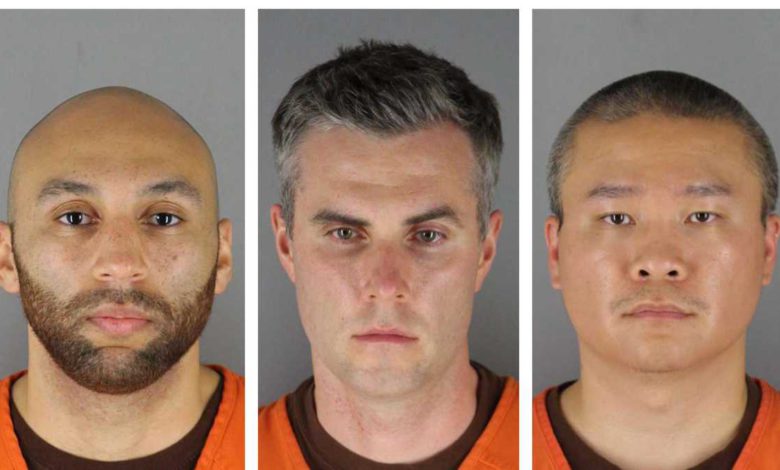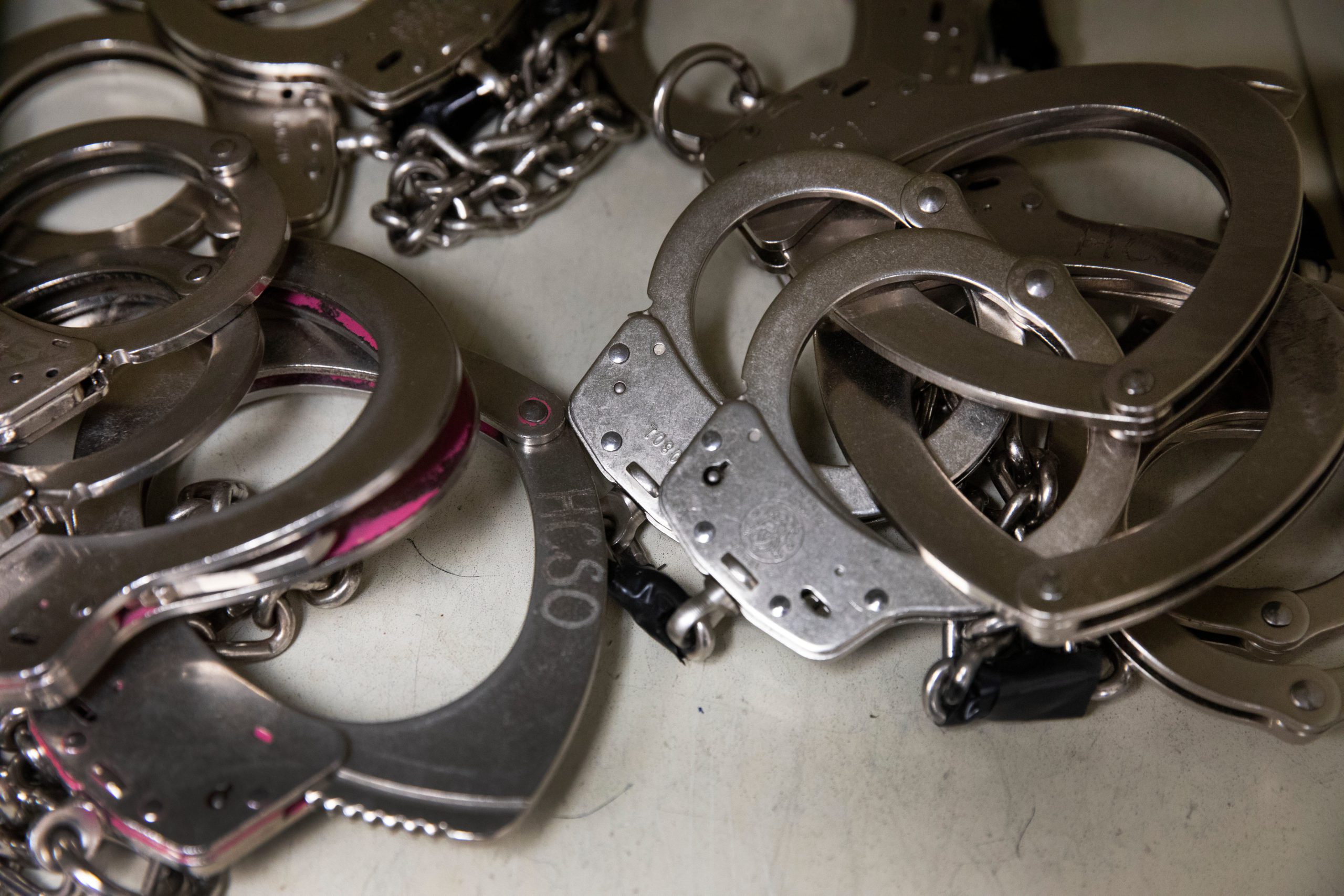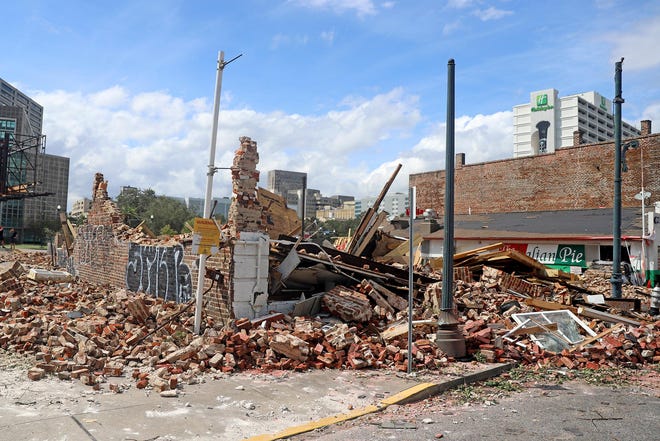

Three Minneapolis police officers charged with violating George Floyd’s civil rights sat by and “chose to do nothing” as Floyd pleaded for air and then went silent, a federal prosecutor said Tuesday at the start of closing arguments in their trial.Prosecutor Manda Sertich singled out each former officer — Tou Thao, J. Alexander Kueng and Thomas Lane — as the state wrapped up its monthlong case.All three are charged with depriving Floyd of his right to medical care as Derek Chauvin pressed his knee into Floyd’s neck for 9 1/2 minutes. Lane held the 46-year-old Black man’s feet, Kueng knelt on his back and Thao held back bystanders.Kueng and Thao are also charged with failing to intervene to stop Chauvin during the May 25, 2020, killing that triggered protests worldwide and a reexamination of racism and policing.“Make no mistake, this is a crime.” Sertich told jurors.Chauvin pleaded guilty in the federal case in December, months after he was convicted of state murder and manslaughter charges.Closing arguments in the current trial were expected to take most of Tuesday before the case goes to the jury, which appears to be mostly white.The trial was wrapping up just as another major civil rights trial in Georgia resulted in the conviction of three white men on hate crimes charges in the death of Ahmaud Arbery, a 25-year-old Black man who was chased and shot in February 2020.In the Minnesota trial, prosecutors have argued that the officers violated their training by not rolling Floyd onto his side or giving him CPR. They said at the start of the trial that the officers stood by as Chauvin slowly killed Floyd in front of them.They presented weeks of testimony and evidence about the officers’ training, arguing that they knew they had a duty to intervene to stop Chauvin and render medical aid. Prosecutors have argued that Floyd’s condition was so serious that even bystanders without basic medical training could see he needed help.Defense attorneys argued that the Minneapolis Police Department’s training was inadequate. They also attacked a police culture that they said teaches officers to defer to their seniors, saying that Chauvin called all the shots at the scene. Lane and Kueng, who were both rookies, argued that they deferred to Chauvin.Lane testified that he asked twice if Floyd should be rolled over but was rebuffed, and that he held his position because an ambulance was on the way.Kueng testified that Chauvin was his former training officer and that he had considerable sway over his career. He said he trusted Chauvin’s advice.Thao testified that he was watching the bystanders and he trusted that the officers behind him were caring for Floyd.At the start of the monthlong trial, U.S. District Judge Paul Magnuson selected 18 jurors, including six alternates. Fifteen people now remain — 12 who will deliberate and three alternates. The court did not release demographic information, but the jury appeared largely white, with one woman who appeared to be of Asian descent, among the 12 expected to deliberate.Lane, who is white, Kueng, who is Black, and Thao, who is Hmong American, also face a separate trial in June on state charges alleging that they aided and abetted murder and manslaughter.
Three Minneapolis police officers charged with violating George Floyd’s civil rights sat by and “chose to do nothing” as Floyd pleaded for air and then went silent, a federal prosecutor said Tuesday at the start of closing arguments in their trial.
Prosecutor Manda Sertich singled out each former officer — Tou Thao, J. Alexander Kueng and Thomas Lane — as the state wrapped up its monthlong case.
All three are charged with depriving Floyd of his right to medical care as Derek Chauvin pressed his knee into Floyd’s neck for 9 1/2 minutes. Lane held the 46-year-old Black man’s feet, Kueng knelt on his back and Thao held back bystanders.
Kueng and Thao are also charged with failing to intervene to stop Chauvin during the May 25, 2020, killing that triggered protests worldwide and a reexamination of racism and policing.
“Make no mistake, this is a crime.” Sertich told jurors.
Chauvin pleaded guilty in the federal case in December, months after he was convicted of state murder and manslaughter charges.
Closing arguments in the current trial were expected to take most of Tuesday before the case goes to the jury, which appears to be mostly white.
The trial was wrapping up just as another major civil rights trial in Georgia resulted in the conviction of three white men on hate crimes charges in the death of Ahmaud Arbery, a 25-year-old Black man who was chased and shot in February 2020.
In the Minnesota trial, prosecutors have argued that the officers violated their training by not rolling Floyd onto his side or giving him CPR. They said at the start of the trial that the officers stood by as Chauvin slowly killed Floyd in front of them.
They presented weeks of testimony and evidence about the officers’ training, arguing that they knew they had a duty to intervene to stop Chauvin and render medical aid. Prosecutors have argued that Floyd’s condition was so serious that even bystanders without basic medical training could see he needed help.
Defense attorneys argued that the Minneapolis Police Department’s training was inadequate. They also attacked a police culture that they said teaches officers to defer to their seniors, saying that Chauvin called all the shots at the scene. Lane and Kueng, who were both rookies, argued that they deferred to Chauvin.
Lane testified that he asked twice if Floyd should be rolled over but was rebuffed, and that he held his position because an ambulance was on the way.
Kueng testified that Chauvin was his former training officer and that he had considerable sway over his career. He said he trusted Chauvin’s advice.
Thao testified that he was watching the bystanders and he trusted that the officers behind him were caring for Floyd.
At the start of the monthlong trial, U.S. District Judge Paul Magnuson selected 18 jurors, including six alternates. Fifteen people now remain — 12 who will deliberate and three alternates. The court did not release demographic information, but the jury appeared largely white, with one woman who appeared to be of Asian descent, among the 12 expected to deliberate.
Lane, who is white, Kueng, who is Black, and Thao, who is Hmong American, also face a separate trial in June on state charges alleging that they aided and abetted murder and manslaughter.
Source link









